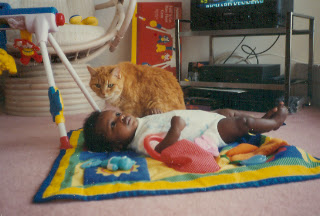I only got to go smelting once and it was a bust.
We were teenagers, my brother and me and two neighbors, a brother and sister, and one had a car and a net. Someone took a bag of potato chips and bottles of coke.
The moon was full and it was a bit late in the spring to be smelting, but we went anyway.
We threw the drag net time and time again and caught fish that we had to throw back, but not a single smelt, because they were all gone, out to deeper water.
So we gave up in the cold and the dark and built a bonfire and sat on logs in the quiet moonlight and ate the chips and drank the warm sodas.
Always, there were neighbor men in the village with fishing nets and a taste for smelt, and they'd just show up at our door late one night with a huge pail of smelt in water for us. The catch was good, they said.
Sometimes they were farm boys and sometimes village family men, and they always shared with everyone who ate smelt.
I cleaned smelt in a flurry early the next morning, out on the fish cleaning tree stump.
Mom fried them in butter and coated in corn meal. The bones were non-threatening, so tender were they. We ate the whole fish in one gulp. Hundreds of them.
I always wanted to go smelting to see how it was done, to see how exciting it was. Because one thing was sure, any man or boy who went smelting in the cold spring at Lake Erie had a lot of fun doing it.
Girls just didn't go.
They weren't allowed.
It was a guy thing.
We were teenagers, my brother and me and two neighbors, a brother and sister, and one had a car and a net. Someone took a bag of potato chips and bottles of coke.
The moon was full and it was a bit late in the spring to be smelting, but we went anyway.
We threw the drag net time and time again and caught fish that we had to throw back, but not a single smelt, because they were all gone, out to deeper water.
So we gave up in the cold and the dark and built a bonfire and sat on logs in the quiet moonlight and ate the chips and drank the warm sodas.
Always, there were neighbor men in the village with fishing nets and a taste for smelt, and they'd just show up at our door late one night with a huge pail of smelt in water for us. The catch was good, they said.
Sometimes they were farm boys and sometimes village family men, and they always shared with everyone who ate smelt.
I cleaned smelt in a flurry early the next morning, out on the fish cleaning tree stump.
Mom fried them in butter and coated in corn meal. The bones were non-threatening, so tender were they. We ate the whole fish in one gulp. Hundreds of them.
I always wanted to go smelting to see how it was done, to see how exciting it was. Because one thing was sure, any man or boy who went smelting in the cold spring at Lake Erie had a lot of fun doing it.
Girls just didn't go.
They weren't allowed.
It was a guy thing.









